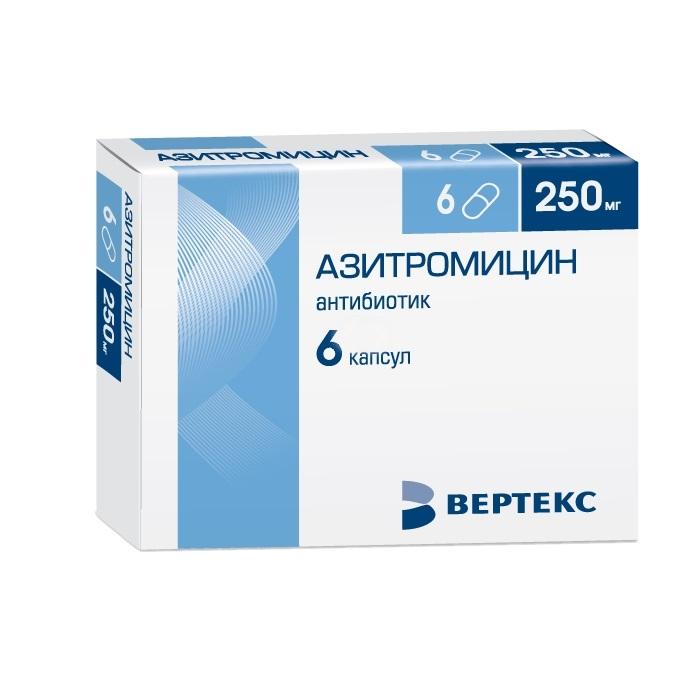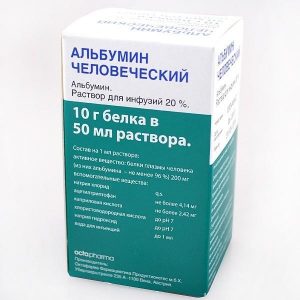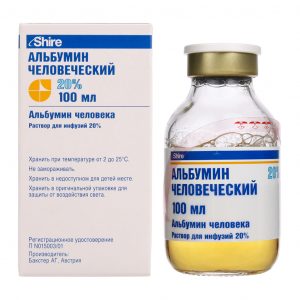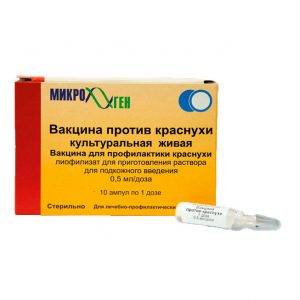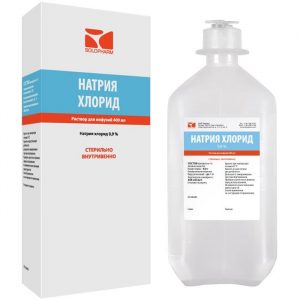Description
Latin name
AZITHROMYCIN
release form
release form
capsules Hard white gelatin. The contents of the capsules is a white or white powder with a light yellow tint.
Conglomerates allowed which when pressed with a glass rod easily turn into a loose powder.
Packing
6 pcs
Pharmacological action
Azithromycin – an antibiotic of the macrolide group, is a representative of azolides. Suppresses RNA-dependent protein synthesis of sensitive microorganisms.
Active against most gram-positive and gram-negative bacteria, including Staphylococcus aureus, Streptococcus pneumoniae, Streptococcus pyogenes (group A) and other species of streptococcus, Haemophilus influenzae, H. parainfluenzae, Moraxella catarrhalis Bacteroides fragilis, Escherichia coli, Bordetella pertussisis, B. parafferrieriefferriefferriefferriefferriefferriefferriefferriefferriefferfferriefferrie Chlamydia trachomatis as well as in relation to Legionella pneumophila, Mycoplasma pneumoniae and hominis, Campylobacter spp., Treponema pallidum.
Also active against Toxoplasma gondii.
Indications
Infectious and inflammatory diseases caused by microorganisms sensitive to the drug: Infections of the upper respiratory tract and ENT organs (sinusitis, tonsillitis, pharyngitis, otitis media)
Infections of the lower respiratory tract (bacterial, including those caused by atypmonic pathogens exacerbation of chronic bronchitis)
Infections of the skin and soft tissues (erysipelas, impetigo, secondarily infected dermatoses)
Urinary tract infections (gonorrheal and non-chronic urethritis, cervicitis)
the initial stage of Lyme disease (borreliosis) is erythema migrans.
Contraindications
Hypersensitivity (including to other macrolides).
Hepatic and / or renal failure.
Lactation.
Children under 12 years old.
Precautions: During pregnancy.
With arrhythmia.
Children with impaired liver and / or kidney function.
Use during pregnancy and lactation
May be used during pregnancy, when the benefits of its use significantly exceed the risk that always exists when using any drug during pregnancy.
If necessary, the appointment of the drug during lactation, it is necessary to decide on the termination of breastfeeding.
Composition
1 caps. contains the active substance azithromycin dihydrate 250 mg.
Excipients:
microcrystalline cellulose – 40.6 mg,
low molecular weight povidone – 1.0 mg,
magnesium stearate – 3.7 mg,
sodium lauryl sulfate – 0.7 mg,
lactose monohydrate – before receiving 0 mg capsule
hard gelatin capsules:
titanium dioxide – 2%,
gelatin up to 100%.
Dosage and administration
Inside, 1 hour before or 2 hours after meals, 1 time per day.
Adults with infections of the upper and lower respiratory tract – 0.5 g / day for 1 dose for 3 days (course dose – 1.5 g).
For infections of the skin and soft tissues – 1 g / day on the first day for 1 dose, then 0.5 g / day daily from 2 to 5 days (course dose – 3 g).
In acute infections of the genitourinary organs (uncomplicated urethritis or cervicitis) – once 1 g.
For Lyme disease (borreliosis) for the treatment of stage I (erythema migrans) – 1 g on the first day and 0.5 g daily from 2 to 5 days (course dose – 3 g).
In case of gastric and duodenal ulcer associated with Helicobacter pylori – 1 g / day for 3 days as part of combination anti-Helicobacter therapy.
Children are prescribed at a rate of 10 mg / kg once a day for 3 days or on the first day – 10 mg / kg, then 4 days – 5-10 mg / kg / day for 3 days (course dose – 30 mg / kg).
In the treatment of erythema migrans in children, the dose is 20 mg / kg on the first day and 10 mg / kg from day 2 to 5. In / in, in the treatment of pneumonia – 0.5 g once, for at least 2 days, subsequently inside, 2 capsules (0.25 g each) course – 7-10 days.
Side effects of the digestive system: when taken orally – diarrhea (5%), nausea (3%), abdominal pain (3%) 1% or less – dyspepsia, flatulence, vomiting, melena, cholestatic jaundice, increased activity hepatic transaminases in addition, in children – constipation, anorexia, gastritis candidiasis of the oral mucosa (with iv administration). From the CCC: palpitations, chest pain (1% or less).
From the nervous system: dizziness, headache, vertigo, drowsiness in children – headache (during treatment of otitis media), hyperkinesia, anxiety, neurosis, sleep disturbance (1% or less).
From the genitourinary system: vaginal candidiasis, nephritis (1% or less).
Allergic reactions: rash, photosensitivity, Quincke’s edema with iv administration – bronchospasm (1% or less).
Local reactions: with iv administration – pain and inflammation at the injection site.
Other: increased fatigue in children – conjunctivitis, pruritus, urticaria with iv administration – a change in taste (1% or less).
Drug Interactions
Antacids (aluminum and magnesium), ethanol and food slow down and reduce absorption. When co-administration of warfarin and azithromycin (at normal doses), no change in prothrombin time was detected, however, given that the interaction of macrolides and warfarin may increase the anticoagulation effect, patients need careful monitoring of prothrombin time. Digoxin: Increase in digoxin concentration.
Ergotamine and dihydroergotamine: increased toxicity (vasospasm, dysesthesia). Triazolam: decreased clearance and increased pharmacological action of triazolan.
Zamedlyaet withdrawal and pov shaet concentrations in plasma and toxicity of cycloserine, nepryam h antykoahulyantov, methylprednisolone, felodypyna, as well as drugs, podverhayuschyesya mykrosomalnomu oxidation (carbamazepine, terfenadine, cyclosporine, heksobarbytal, alkaloyd spor ny, valproevaya acid dyzopyramyd, bromocriptine fenytoyn, fenytoyn, oral hypohlykemycheskye funds, theophylline and other xanthine derivatives) – due to the inhibition of microsomal oxidation in hepatocytes by azithromycin).
Linkosamines reduce effectiveness, tetracycline and chloramphenicol – enhance. Pharmaceutically incompatible with heparin.
Overdose
Symptoms: severe nausea, temporary hearing loss, vomiting, diarrhea.
Storage conditions
Store in a dry, dark place at a temperature not exceeding 25 ° C.
The drug should be stored out of the reach of children.
Expiration
2 years.
Deystvuyuschee substances
Azithromycin
Dosage form
Dosage form
capsules
